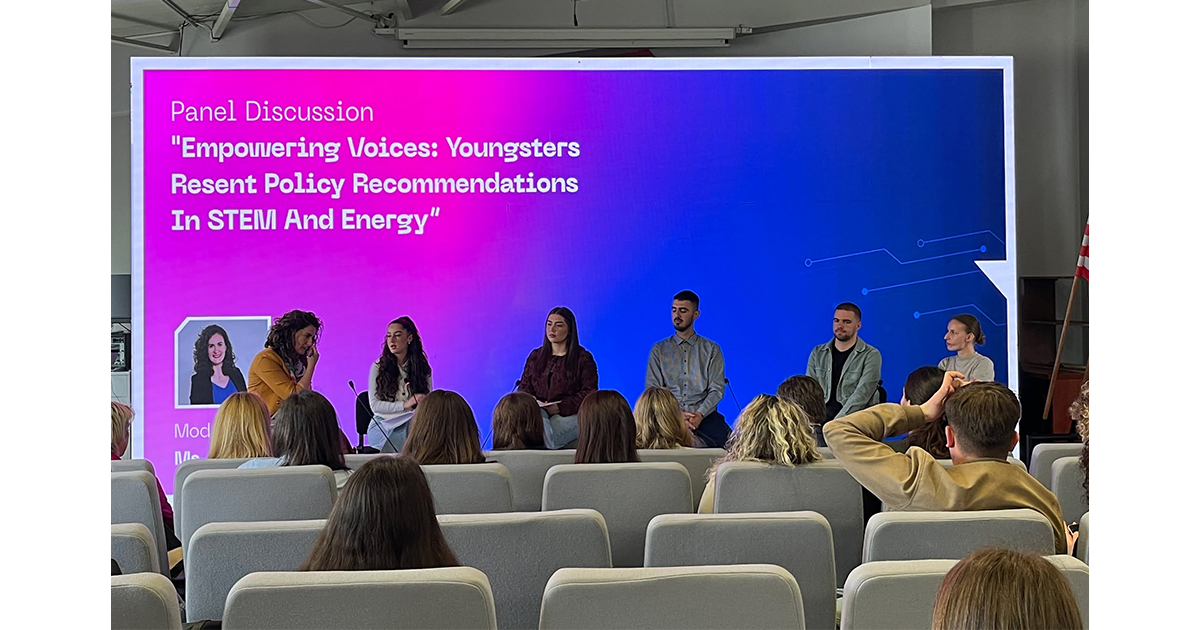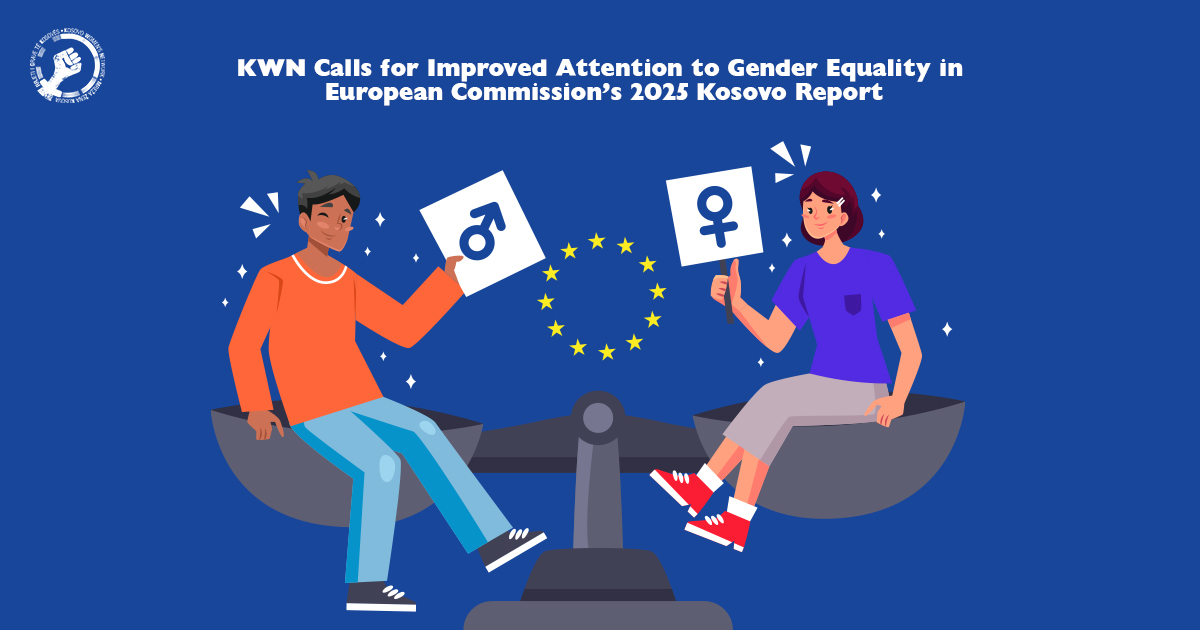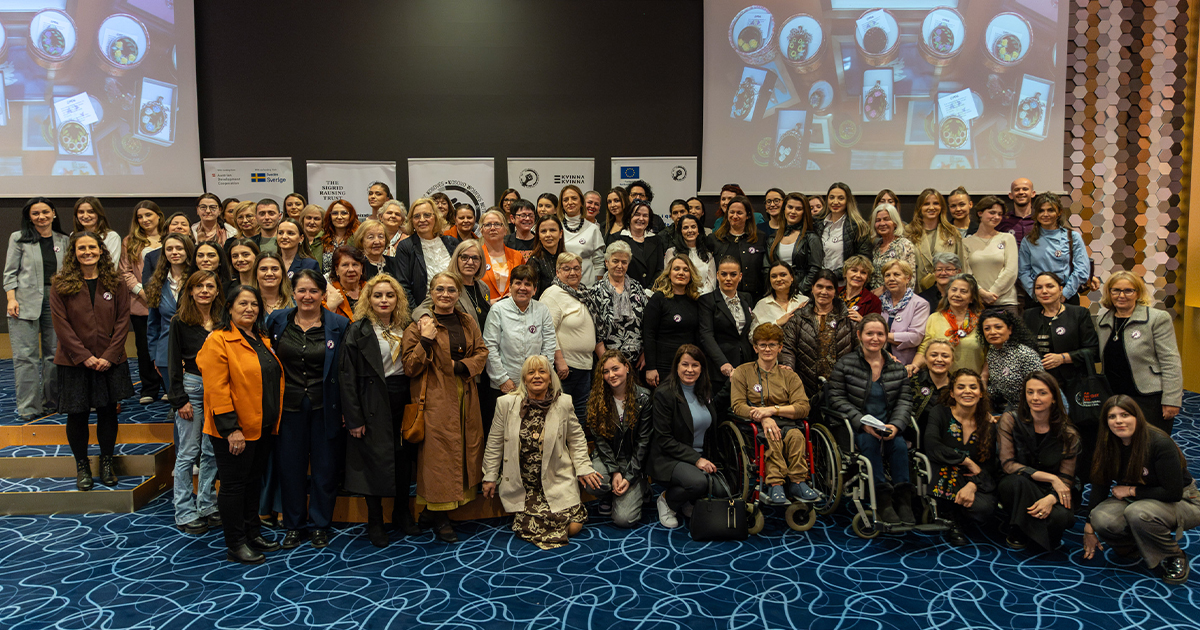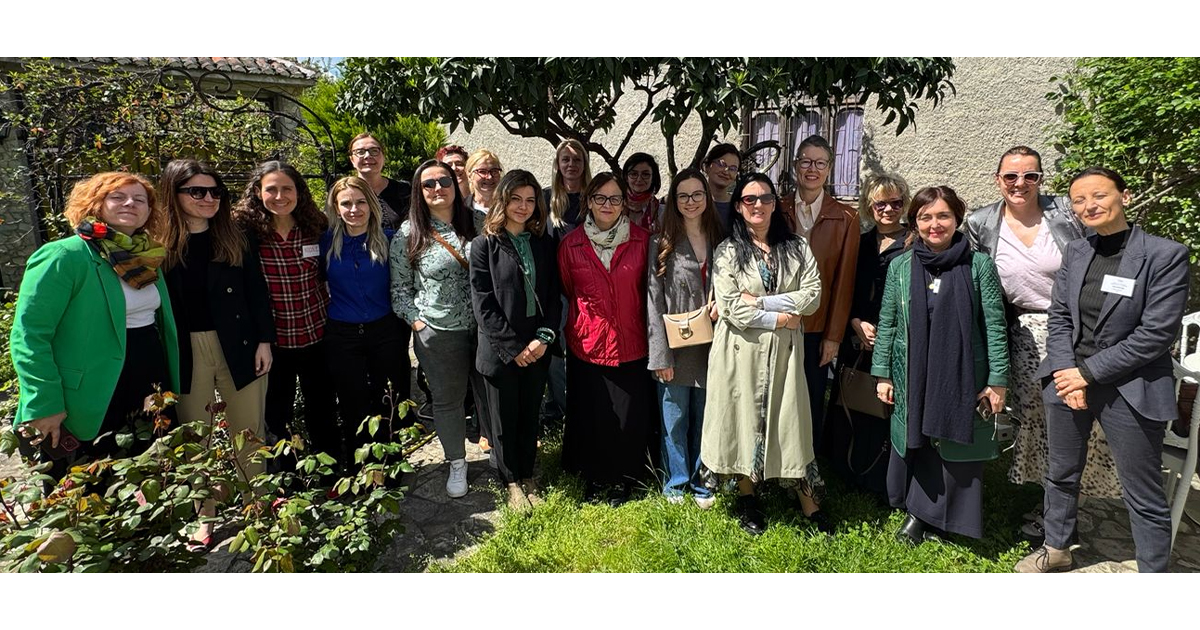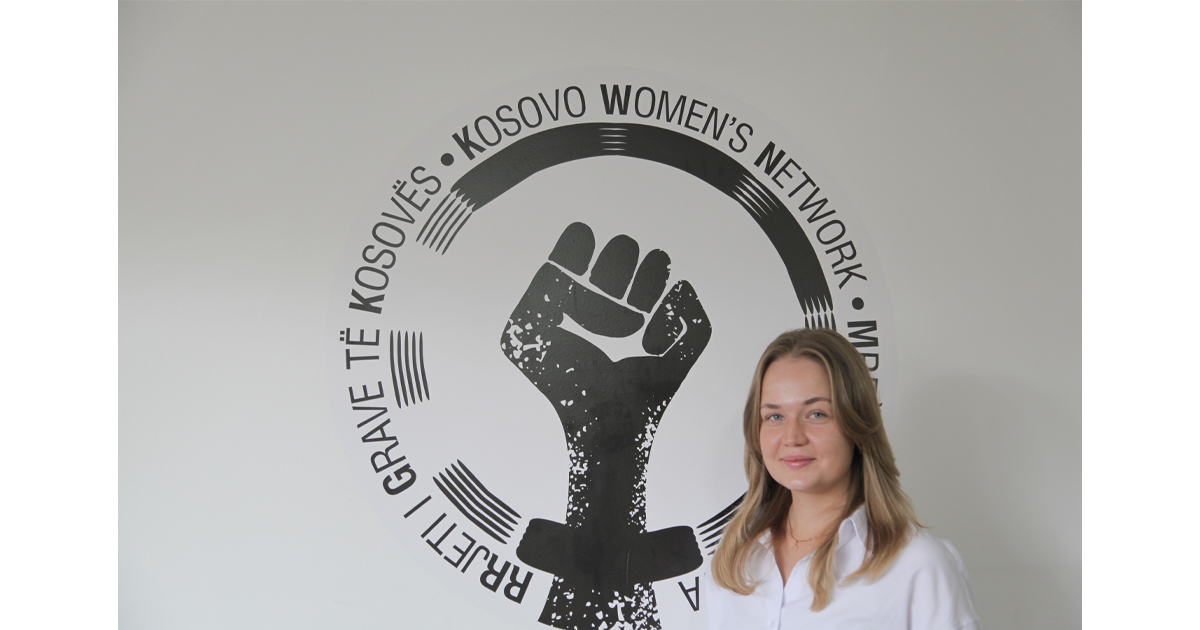As violence, discrimination, sexual harassment, and inequality against women continue, it is very important for girls and women to stand in solidarity, support, and promote each other in all spheres of life.
This was the message conveyed by Igballe Rogova, the Executive Director of the Kosovo Women’s Network (KWN), during the regular KWN membership meeting on Monday, March 13th. Rogova urged people to join FemFest, a global campaign against violence towards women, and to wear red shoes or at least something red once a week on Tuesdays, to demonstrate their solidarity with all girls and women.
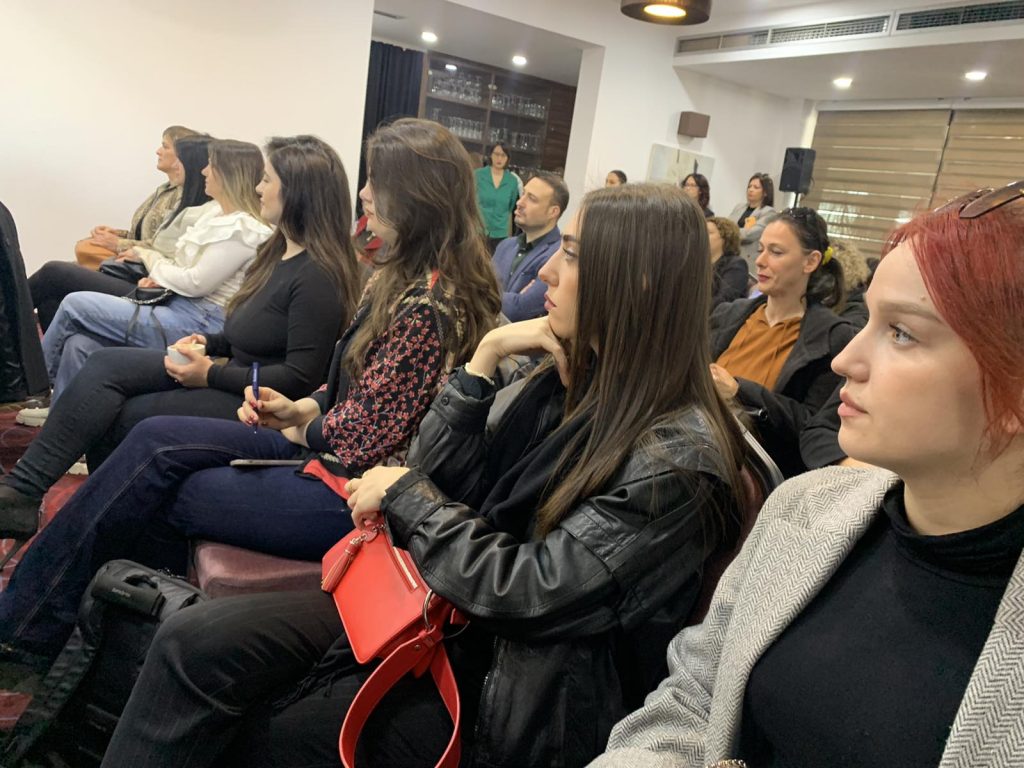
“We need solidarity now more than ever. We need to support each other now more than ever,” emphasized Rogova.
When women support and encourage each other, they pave the way for a more inclusive and equal society, breaking the stereotypes and societal expectations that can limit their potential.
“That’s why we will be part of the global campaign against violence. The concept behind this campaign is that every Tuesday, we will speak kindly of each other, refrain from criticizing or insulting each other, and provide support to one another,” explained Rogova, whose proposal was unanimously supported by the members.
During the meeting, KWN and its members shared information about their work and upcoming activities. Among other things, KWN briefly presented the initial findings from its assessment of members’ needs based on the KWN regulations and code of conduct.

Rogova stressed that the evaluation was necessary, and members were informed that those who wish to remain part of the network must accept the new Code of Conduct. Out of the 194-member organizations, 28 have not accepted the new code, and 31 have not responded at all.
“The code is actually not new, it is updated because we have seen sexist, homophobic language among the members and we wanted to strengthen the network because when we say that KWN is working for human rights, it must strengthen all human rights and not just one or two,” Rogova said, saying that the 31 organizations that have not responded can apply to re-join the network whenever they want.
“The door is always open; they can reapply because we don’t close the network door. Out of 194 organizations, today we have 135 members of the network. This is important to share with you,” said Rogova, noting that the Kosovo Women’s Fund has a fantastic team, which tries all the time to help member organizations, but they have not always found understanding.
In this context, she said that the assessment was conducted because KWN was no longer able to take responsibility for the mistakes of organizations before the donors.
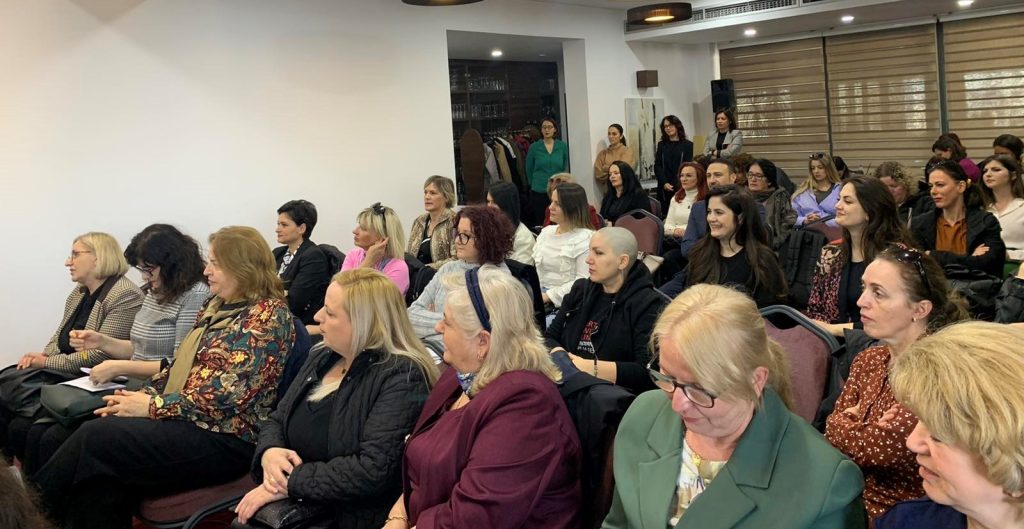
“We have created the mechanisms of the Fund; we have always worked together and have not done anything on our own. We have established mechanisms so that if the work gets delayed, or the documents are not submitted on time, we have postponed it until a solution is found. This year, we can’t delay it any longer. Contracts must be implemented in a timely manner. We can no longer hold ourselves accountable for the mistakes of organizations,” said Rogova.
Other key findings of the Assesment include:
- 40% of KWN members have strategies that lead their work;
- On average, every member supports approximately 135 people per year, and, in 2022, KWN supported more than 97,172 beneficiaries;
- Most members (93%) said that lack of funds was the biggest challenge they faced;
- Related, the second most mentioned challenge was lack of staff (46%) and lack of facilities (24%);
- Most members sought longer term grants (62%); larger grants (51%); more flexible grants (18%); and more frequent calls for proposals from the Kosovo Women’s Fund.
During the meeting, the members also shared information about the activities carried out and future plans.
The annual payment of KWN membership, which contributes to the KWN Sustainability Fund, was also discussed, and it was decided that it would be €30. Rogova also emphasized that this year, KWN, through the Kosovo Women’s Fund (KWF), is distributing grants in the amount of €215,000.
Furthermore, Donjete Berisha Muharremi, Manager of the KWF, indicated that the calls have already been closed, and at the moment, three new members of the Grant Review Committee are being selected, who will be included in the evaluation for this round.
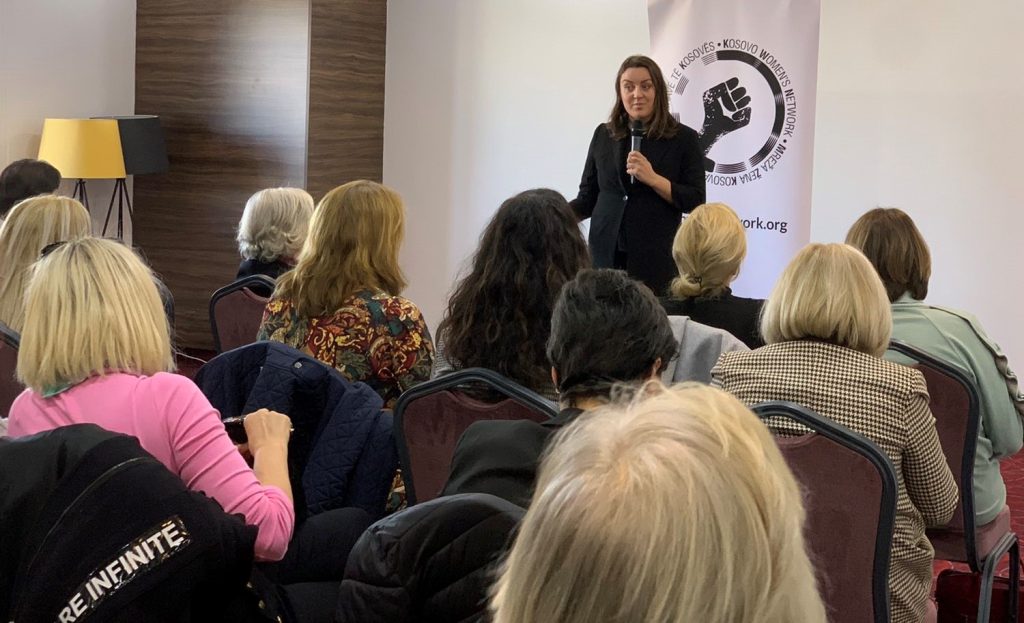
The members were informed about the voting method, where three of the six nominated candidates will be voted online and selected by the members themselves: Anisa Ismaili, Nermin Mahmuti, Dilleza Olluri, Jeta Bakija, Aida Derguti, and Ada Shima.
The members present had the opportunity to ask questions and be informed about everything related to the progress of the call within the KWF, and were also encouraged to continue communication with the KWN staff for whatever the need may be.
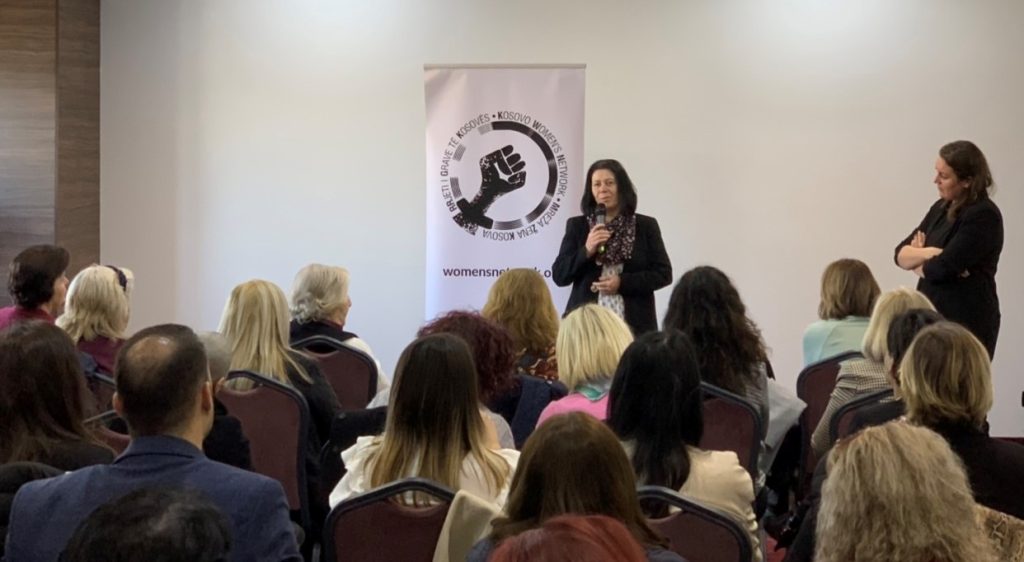
The member organization Monsig informed the members about the activities held for Gender-Responsive Budgeting, while Artpolis provided information about the organization of the feminist spring school.
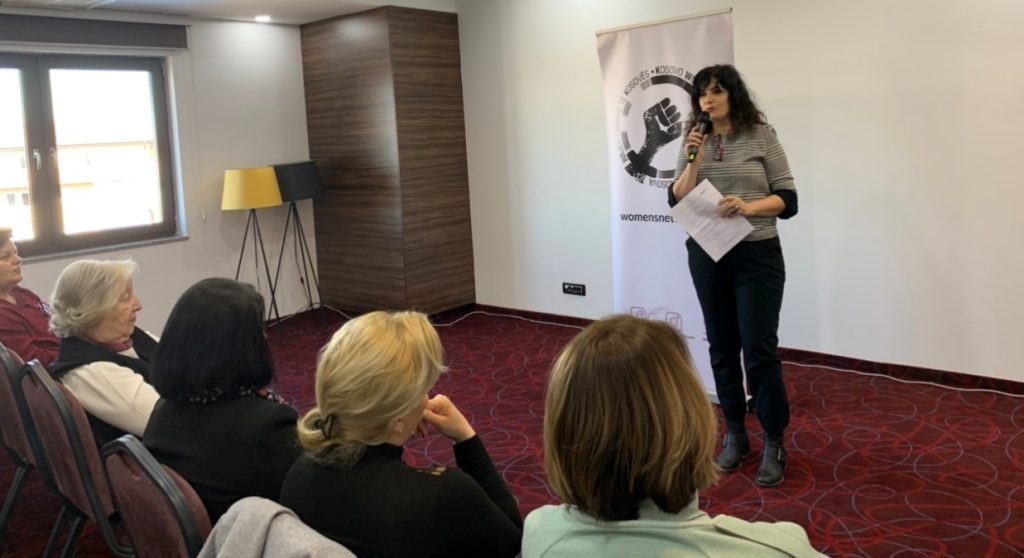
On the other hand, ArtWhitoutLimit informed that the film that opened their annual festival dedicated to people with disabilities, “An Irish Goodbye,” won the Oscar award as the best short film.
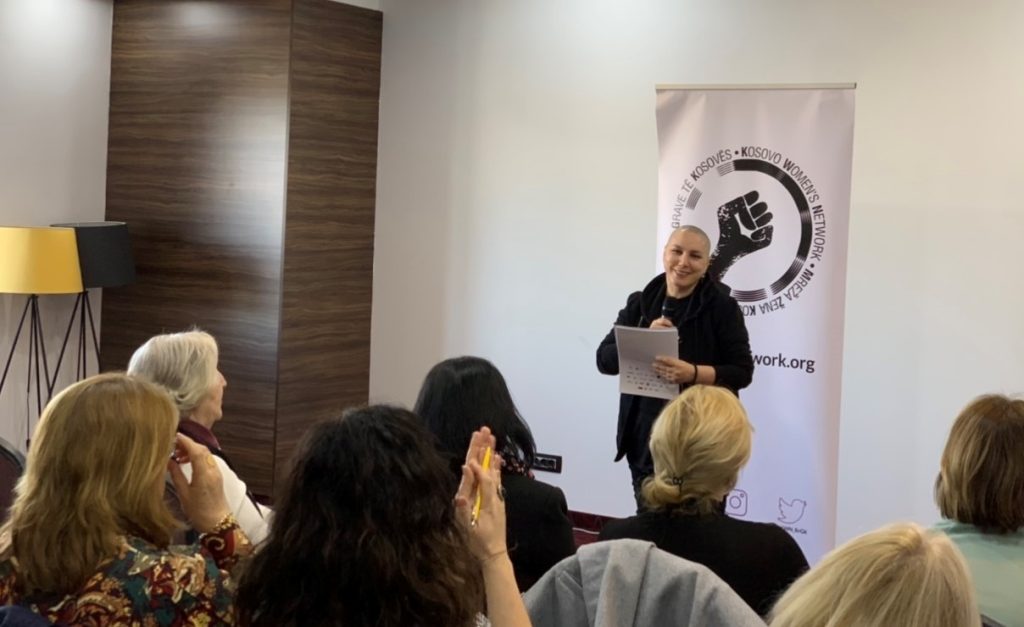
This meeting is supported by the Kvinna till Kvinna Foundation.


